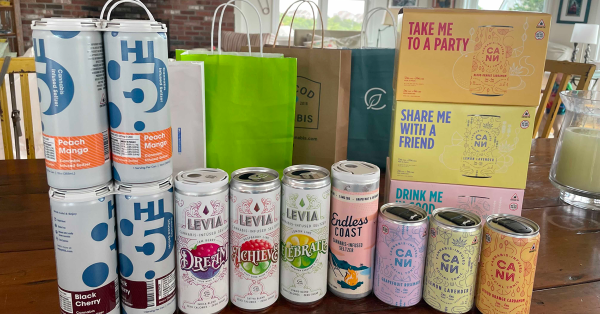The Rise of THC-Infused Drinks

05/24/2024
In recent years, the refrigerator section of stores has seen an increase in the availability of THC-infused drinks. These beverages, which have been legalized through a loophole in the 2018 Farm Bill, have become a significant part of the market, drawing interest from both alcohol distributors and marijuana companies. The drinks are often derived from hemp, which contains less than 0.3% of the high-inducing ingredient THC and has been "inadvertently legalized" through this bill, while marijuana-derived THC products face more stringent federal regulation.
This burgeoning market has seen a surge in internet searches for THC-laced drinks, which have become so mainstream that they are featured in recommendations lists for a "happy hour high" in publications like Bon Appétit and Esquire. Major retailers like Total Wine now offer a selection of THC drinks, usually between 2.5mg to 10mg. However, some states have started to regulate these drinks, and the U.S. Cannabis Council has called on Congress to more strictly regulate hemp products.
The rise of THC-infused drinks has created a unique market that could potentially impact the alcohol industry. As beer sales plummet, Big Alcohol has expressed interest in this market, but not all are pleased with the current situation. The competition between alcohol distributors and marijuana companies for a stake in the market has led to friction, with some states and organizations lobbying for stricter regulations on these products.
THC drinks offer precise dosing and a more intense and prolonged high than other forms of cannabis consumption, such as smoking or edibles. Their effects can kick in as quickly as five to 10 minutes, making them an attractive option for consumers seeking a specific and controlled experience. However, clinical trials on the effects of THC are limited due to regulations on cannabis.
The 2018 Farm Bill authorized the production of hemp and removed it from the Drug Enforcement Administration's controlled substance list, contributing to the growth of the THC-infused drinks market. The Biden administration has also moved to reclassify marijuana as a less dangerous drug, proposing to make it a Schedule III drug. This reclassification could further impact the regulatory environment surrounding THC-infused drinks and other cannabis products.
As the market continues to evolve, the future of THC-infused drinks remains uncertain. With growing interest from consumers and businesses alike, it will be crucial for regulators to strike a balance between providing a safe and regulated product for consumers and allowing for a competitive market that can continue to grow and innovate.







